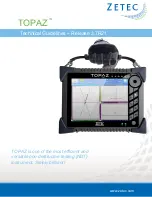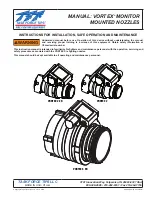
GE M
EDICAL
S
YSTEMS
- K
RETZTECHNIK
U
LTRASOUND
D
IRECTION
105844, R
EVISION
1
V
OLUSON
® 730 S
ERVICE
M
ANUAL
5-10
Section 5-2 - General Information
5-2-4
Dataflow Control Description
This section describes the functions of the Voluson® 730 Boards vs. different Operation Modes.
•
CPC - System Control Board
•
CPR - Beam former Board
•
CPG - Mid-Processor Board
•
CPF - Color Doppler Board
•
CPS - Scan converter Board
(CPS-Blockdiagram) see
Figure 5-11 on page 5-25
•
CKV - PC-Video converter Board
5-2-4-1
B-Mode
1.) CPC
The CPC contains the Clock-Oscillator (60MHz) and PRF-Generator.
It generates (drives) BF (=Beam former)-ASIC-Clock (60MHz) and shots for the CPR.
Instructs the BF-ASIC of TX-Frequ, TX-RX-Focus and Line number (lateral Position).
The CPC contains the TX-Power-DAC.
2.) CPR
Contains 32 CPD (BF-Subboards).
The CPD consists of BF-ASIC, TX-Amplifier, RX-TGC-Amplifier, Signal-ADC.
Each CPD can support 8 TX-Channels and 4 RX-Channels.
-
TX-Channel: ASIC generates TX-Freq through dividing 60MHz by 2,3,4,5,... and TX-Focus.
-
RX-Channel: ASIC generates Sample-Clocks for the ADC, manages RX-Focus (Delay and
Chain-Adder) and Apodization.
3.) CPG
Contains Multibeam-DeInterleave, Subtraction Filter (for THI), Digital TGC, DC-Canceler, Mixer
with NCO (Numeric Controlled Oscillator), FIR-LP (Low Pass Filter), Decimation, Magnitude
Calculator, Log.Amp, Re-Sample, Edge Enhance, Line Filter, Blending and Frame Filter.
The signal is Multibeam-deinterleaved (the incoming signal is TDMA-multiplexed shot1- shot2-
shot3- shot4- shot1...). After DC-cancelling the sig is mixed with the NCO-generated RX-Frequency
and brought to LF-Spectrum, where the FIR-LP cuts HF.
The Magnitude-Calculator arranges the Complex Demodulation, and the Log.Amp the Conversion
from High-Dynamic Linear Signal to the Low-Dynamik(e.g.8Bit) Log-Signal.
Several Postprocessors (Line Filter, Frame Filter, ReSample, Edge Enhance) enable smooth
image quality while keeping contrast high.
•
Special B-Mode Techniques:
a.) FFC (Frequency and Focus Composite)
2 or more TX-shots are placed to the same Tissue-location. The shots have different TX-
focus. By means of Blending they are composed to one whole RX-Line.
















































